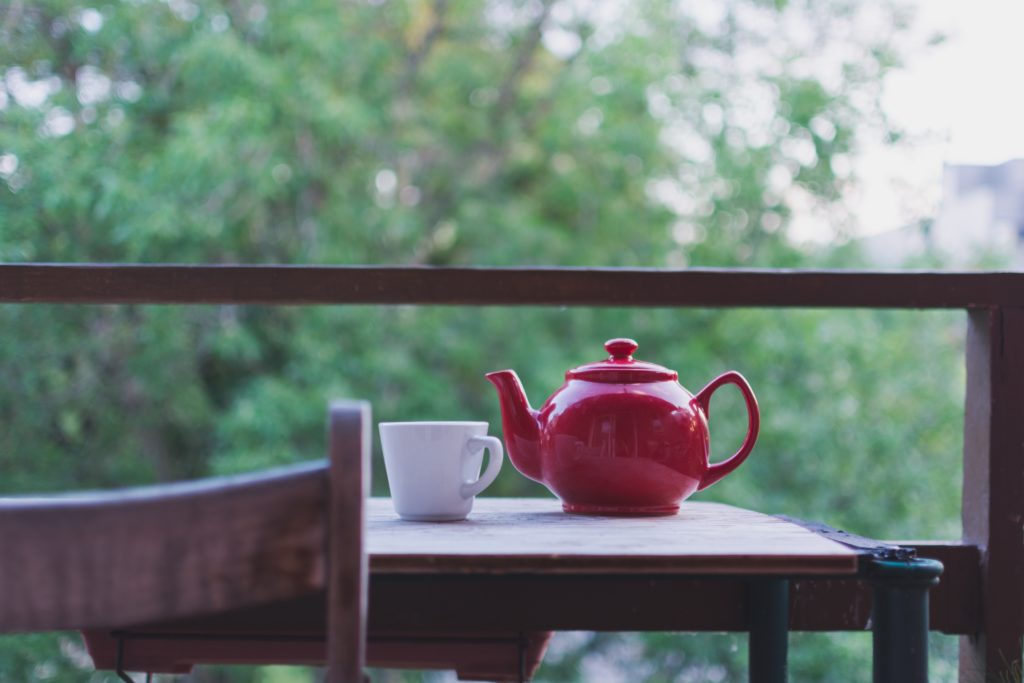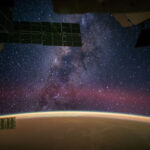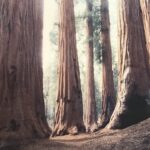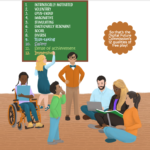
I like to do some kind of personal retreat or professional development workshop around the time of my birthday. Four years ago I took a train to San Diego to attend the first West Coast .b Mindfulness training. Another year I spent a few days at Green Gulch Zen Center.
This year right after my birthday, David Levy, author of the excellent book Mindful Tech, was facilitating a weekend Mindful Tech retreat with poet, author, and founder of Everyday Zen, Norman Fischer. I’ve always wanted to go to Tassajara, deep in the Los Padres National Forest in Northern California. I had no doubt that the combination of Mindful Tech + Tassajara would be just the support I needed. The week of the trip, I was starting to feel some anticipation when I received an email that the event was cancelled.
Alas. That was disappointing. But I have practice at doing what I call micro-retreats here in my home. So I let go and adjusted, taking the idea of a Mindful Tech retreat into my own hands during the same time I would have been at Tassajara. I took a break from media and minimized phone. I used the time to reflect and review my past year. I journaled. I read. I walked. I sat still, and drank tea, listening to the birds, watching the light change. Rare moments of quieting down. I soft-focused on my big picture.
At the end of the 3 days, I felt refreshed and clear about my priorities.
And Monday morning I slipped back into my metaphorical wetsuit and fins, air tank and mouth piece, and immediately reimmersed in the great Info Ocean.
A week later, I read a post on Medium titled “Information Sickness: How It Hurts Us and How to Escape,” by Charles Chu. Charles describes himself as an essayist and semi-nomadic Japanophile. He walks 2–4 hours a day. 2–4 hours a day.
Something clicked. I spontaneously started a News-Out—no news via my phone, my laptop, or my car radio. I emailed two close friends, told them I’m taking a news break, and asked them to let me know if anything big happens. I trust them to decide what qualifies as “big.”
When I started, I didn’t have an idea how long I would do this. I just knew I was beginning. A week into it, I decided to stay with it for 2 weeks. As I close in on 2 weeks, I’ve decided to keep it up for a full 8 weeks. Here’s what I have learned.
To recognize and disrupt online behaviors that have become automatic, I need an extended period of time unplugged. Not just days. Weeks. My weekend micro-retreats help me to be more intentional with my time and deepen my focus, but when the weekend ends, I glide right back into my online routines.
It’s too easy to click. Just that. I need to construct gates and secret passwords to say to gain entry—passwords I strategically forget from time to time.
I’m recovering an ability to be more present with discomfort and breathe. I write for a large part of my work on projects that are out of my comfort zone. I get intimidated frequently. I’ve been reinforcing the impulse to release pressure by constantly click-scanning the Info Sea—my instant go-tos are The New York Times, the Guardian, the BBC. Depending on the level of discomfort I’m feeling, I’ll follow links in the dozens of newsletters I have delivered to my inbox—journalism newsletters, science newsletters, future newsletters, technology newsletters, education newsletters…you get the picture. And to buoy myself up in the afternoon, Colbert with his razor-sharp humorous take on current events, and Trevor Noah counter my mental and emotional fatigue.
I notice now when I have crossed the news threshold and I stop immediately. I recognize the value of longer unplugging and will incorporate regular News-Outs in my life.
Just because I am not reading/listening to the news media does not mean I am disengaged. In some ways, I’m actually more engaged. My mind has more space. I notice what I’m feeling. Maybe I am more present with family and friends, and the people I meet. I can consider solutions, not just problems.
That’s my Mindful Digital Life investigation this month. What’s yours?
Go Deeper? I love Manoush Zomorodi. Manoush hosts the podcast Note to Self on WNYC. In 2015 she hosted the 6-part challenge Bored and Brilliant. She “led thousands of [her] listeners through a week of experiments designed to help them reassess their technology habits, unplug for part of each week and jump-start their creativity.” She’s written a new book based on that challenge—Bored and Brilliant: How Spacing Out Can Unlock Your Most Productive & Creative Self. Her Vancouver TED Talk has just been posted. Consider trying her Bored & Brilliant Challenge for your own investigations and challenge your family members to join you. I’d love to hear about it if you do.
Warmly,
Claudia
“When we try to pick out anything by itself, we find it hitched to everything else in the Universe.” ~John Muir, My First Summer in the Sierra


